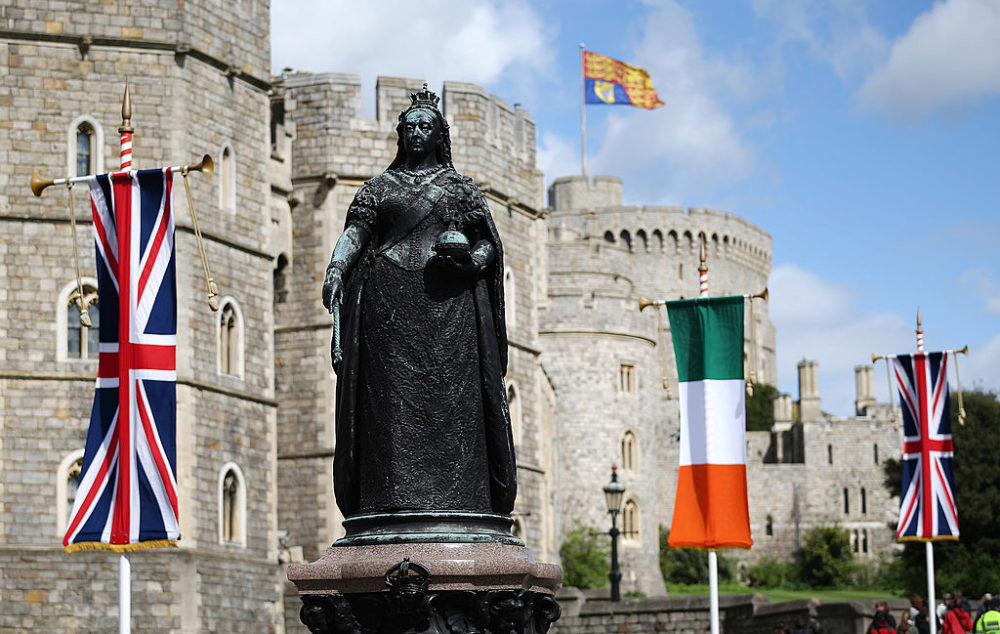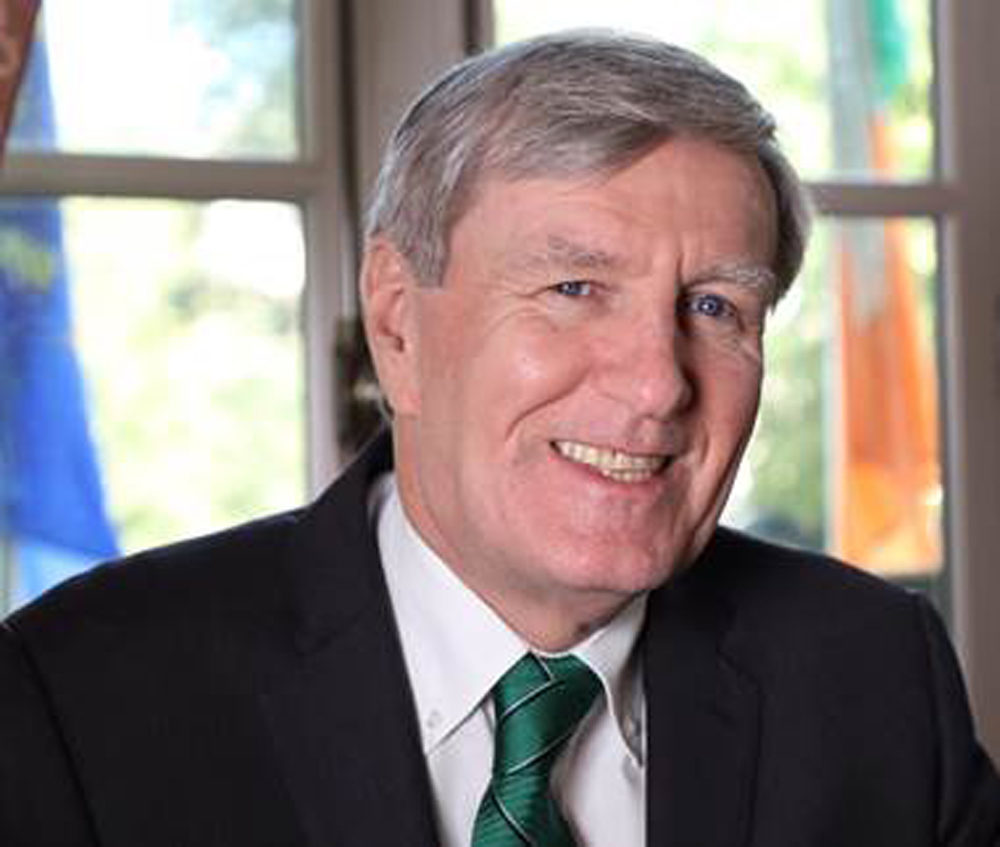Advertisement
Irish Ambassador On What Brexit Means for Ireland

There are new calls for the British Parliament to reconvene after a Scottish court ruled that Prime Minister Boris Johnson's shutdown was unlawful.
What does the U.K.'s impending exit from the European Union mean for Ireland?

Irish Ambassador to the U.S. Daniel Mulhall says one of the biggest challenges is the "uncertainty factor" of Brexit.
"If Britain leaves the European Union on the 31st of October without a deal, it goes from having a completely smooth and clear trading relationship with its nearest neighbors to having nothing, to having to start afresh," Mulhall says. "And nobody is quite sure how this will work out."
Interview Highlights
On concerns about violence on the border Northern Ireland and Ireland
“I don't like to talk about violence. We have two concerns. The first is that we have a major trading relationship with the United Kingdom, which has been operating within the single market for the last 20 years, completely free of any restrictions. If you introduce a situation when Britain is no longer in the Customs Union, no longer in the single market, no longer in the European Union, our trade with Britain is bound to be affected to a negative degree, and that would be economically damaging for us. But the more serious political problem is that there will be a great deal of uncertainty on the border between Ireland and Northern Ireland. Because if the U.K. is outside the Customs Union, Ireland will be obliged to protect the European single market. So the problem would be, ‘How do we maintain an open border in those circumstances?’
"Our government is determined to maintain an open border, because we think that having any kind of border controls on the island of Ireland would be risky. … Because peace in Northern Ireland has saved so many lives over the last 21 years. ... But that peace is fragile because there hasn't been a government in Northern Ireland now for two and a half years more. … And if you toss into that political vacuum the disruptions created by Brexit, it just ratchets up the political atmosphere in Northern Ireland in an unhappy way, an unwelcome way, and that's what we fear."
Advertisement
On why there isn’t a plan in place for the Irish border
“After 45 years of European Union membership, leaving has turned out to be a far trickier prospect than anybody imagined when the referendum was taking place. When the referendum was on, I was ambassador in the U.K., and there was very little attention paid to the Irish border. The assumption was everything will be fine, don't worry, no problems. I did try to warn people at that time that there would be difficulties, and those difficulties have become the crux of the issue between the U.K. and the European Union.
“Ireland is the only place in Europe where there's a land border between the European Union and the United Kingdom. And we had an agreement, by the way, between the previous government and the European Union on withdrawal agreements, which included a backstop that would guarantee there would never be border controls on the island. The current British government wants to scrap that backstop. It says it has alternative ideas that could achieve the same end. But we are still awaiting proposals. Our Prime Minister Leo Varadkar said publicly that we would welcome alternative proposals, but they have to be legally watertight. They can't just be political promises.”
On whether the U.K. government will come up with a new deal before the October 31 deadline
“We certainly hope so because Ireland would be the country, apart from the U.K., that would be most affected by a disastrous Brexit of the kind that a no deal would bring about. So we earnestly hope that we will be able to find solution. But ultimately, we had an agreement. The British government says it's unable to adhere to that agreement. Therefore, it's really up to them to come up with new proposals as to how they think that agreement can be replaced, and then for us to have those negotiations and hopefully reach a solution.
“The European Union has a great capacity for achieving agreements even when you think it's not going to be possible to do so. And therefore if the British Government is genuine in seeking a deal, I would have, you know, some hope that we would be able to find some solutions. But it really does require the British government to specify clearly what it wants and how it hopes to achieve the outcome. The EU has said we have two concerns. One is to protect the European single market. And the second is to protect peace in Northern Ireland and the Good Friday Agreement. Those two aims would have been achieved by the withdrawal agreement and the backstop. Without those aims being achieved, no agreement can be reached, in my view.”
On the possibility of a second referendum in the U.K.
“We like the status quo. If [Britain] wishes to remain in the EU, we'd be delighted. But if it leaves the EU, we want to see Britain as closely aligned as possible to the European Union, so as to minimize the disruption to relations within Europe and to relations between Britain and Ireland and on the island of Ireland. Those are our aims. I mean how exactly those aims are to be achieved? Well, really, that's a matter for the British people, the British Parliament and the British government to determine.”
On the possibility that Northern Ireland and Ireland might become a unified whole outside of the United Kingdom
“Well, the Good Friday Agreement of 1998 provides for the prospect of a referendum in the future, [if] there is evidence that there might be a majority in Northern Ireland that would favor a united Ireland. And both governments have agreed to respect any decision by the people of Northern Ireland ... That prospect is there, and we have to wait and see what happens in the years ahead. Obviously, the way Brexit works out will have an effect on thinking in Northern Ireland. But for me and for our government, that is an issue for the future and not an issue for today. The issue for today is how to avoid damage being done by Brexit to the precious peace we've developed in Northern Ireland and to the very close relationship that has developed between Ireland in the U.K.”
Francesca Paris produced and edited this interview for broadcast with Todd Mundt.
This segment aired on September 12, 2019.
